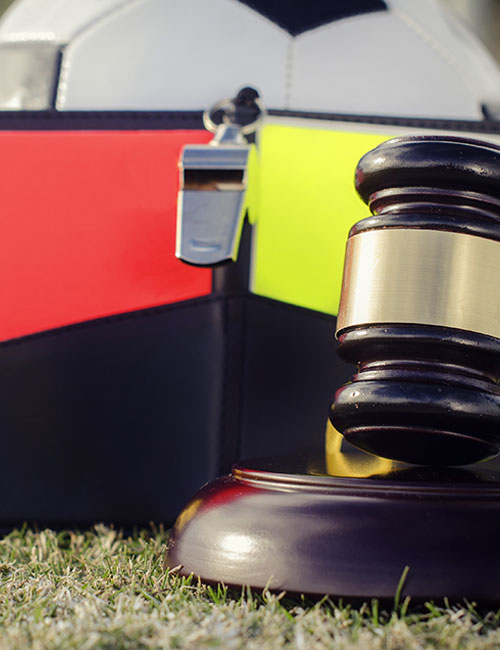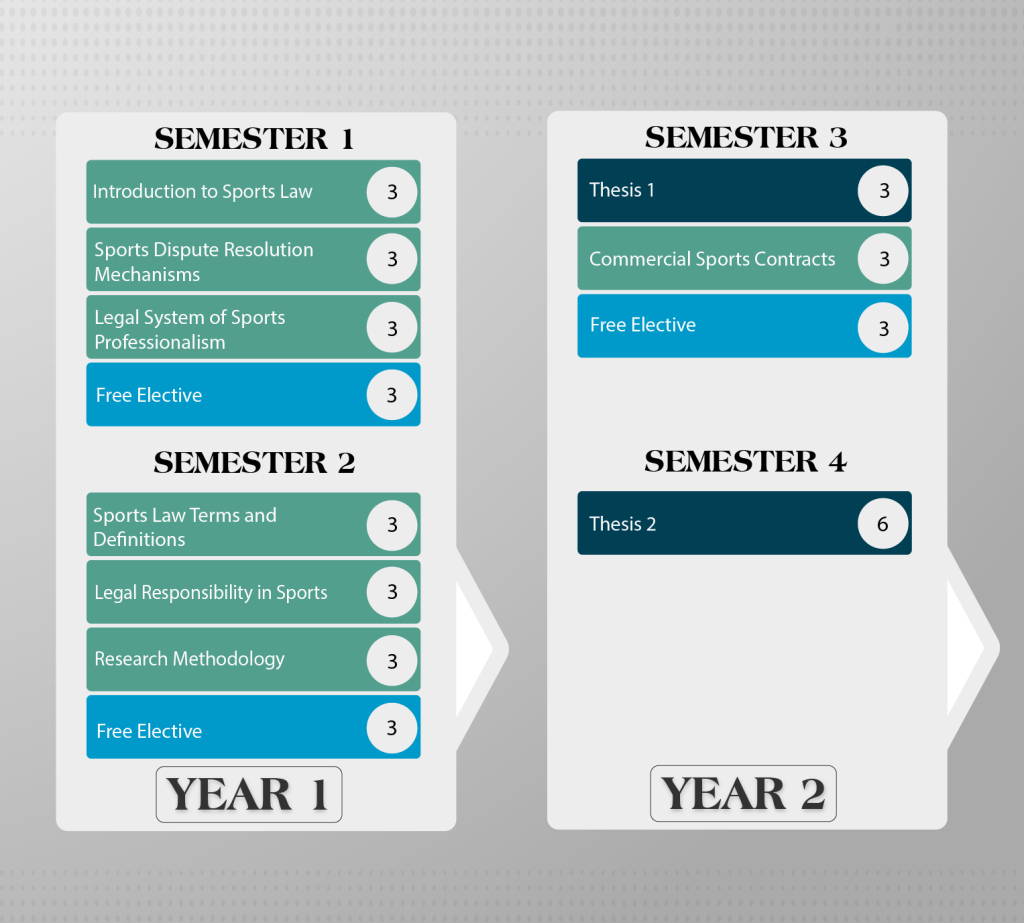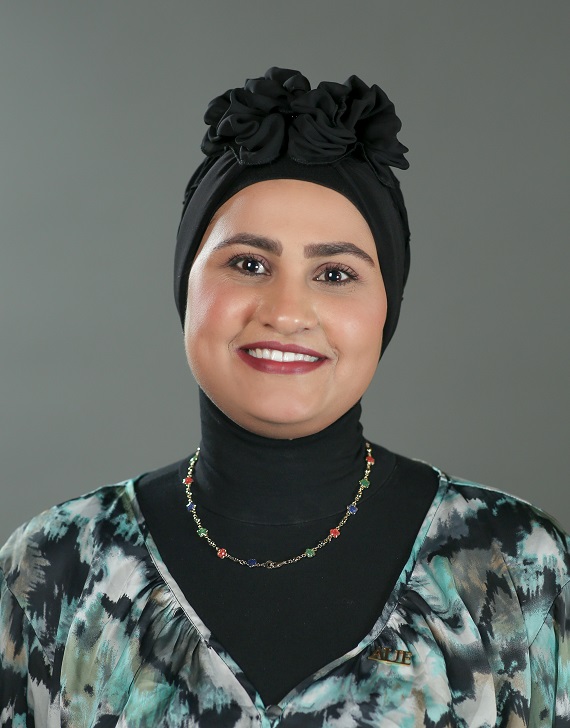Master in Sports Law

There are many potential types of legal infringement committed under the banner of professional sports today, whether in marketing and advertising, broadcasting, reputation management or celebrity privacy.
Sports Law seeks to create a framework related to sports that can be regulated and relied upon by national and international sporting bodies and organizations. Governmental bodies concerned with sports, such as the Ministry of Youth and Sports and its affiliated bodies, require specialists in the rules that govern them; this program exists to create such specialists.
- To provide the graduates of Professional Masters in the Sports Law all legal cultures with a specialization in the field of sports through which the graduate can face the local, Arab and global market through a series of scientific studies and advanced theory.
- Providing the UAE and Arab society with a group of legal competencies in the field of sports capable of giving and perform in an institutional excellence manner through an integrated study of all sports- related contemporary issues.
- Conducting studies with legislative comparison between the GCC, Arab and international sports regulations and laws, with the implementation of all successful experiences and benefiting from various applications thereof.
- Attempt to develop all the scientific capabilities and the skills of scientific research for the student in the professional masters of sports law in order to provide a graduate who is capable of solving all scientific and research problems related to contemporary sports issues.
- Provide the community with graduates able to make a change in the leadership processes and the formulation of sports regulations, rules and legislation in a manner consistent with international rules and national sovereignty.
- Explain the knowledge in the field of sports law in an in-depth and comprehensive manner, as well as the related rules and regulations in terms of national and international scope.
- Use constructive critical thinking skills to provide professional advice of legal relevance in the sports field related to the determination of the scope and jurisdiction of responsibility.
- Practice the drafting of legislation and the preparation of draft sports laws and regulations and national and international sports contracts.
- Develop innovative and smart solutions related to settlement procedures and resolving sports disputes.
- Analyze the contemporary knowledge of scientific research to be the basis for constructive critical thinking with knowledge of latest developments in the framework of sports laws and regulations.
- Use the basic skills related to the field of sports law in terms of his/her ability to analyze and interpret, which represents a complete ability to use them within the field of specialization.
ADMISSION
REQUIREMENTS
GRADUATION REQUIREMENTS
For graduate degree completion, graduate students must satisfy the following requirements:
- Earn a minimum CGPA of 2.00 on a scale of 4.00.
- Successfully complete all courses as described in the study plan.
- The Degree Completion requirements must be met within the timeframe of the program.
- Successfully complete the “Thesis” course.
ACCREDITATION
PROGRAM STRUCTURE
Course Category
Total Number of Courses
Total Number of Credit Hours
Bridging Courses
8
16
Core Courses
7
18
Electives
3
9
Thesis 1
1
3
Thesis 2
1
6
Total (Excluding Bridging Courses)
36 Credit Hours
FEE STRUCTURE
Tuition (One Semester)
Admission (One Time)
BRIDGING COURSES
8 COURSES | 16 CREDIT HOURS
CORE COURSES
7 COURSES | 18 CREDIT HOURS
ELECTIVE COURSES
3 COURSES | 9 CREDIT HOURS
Additionally, the Course focuses on studying sports industry and the transactions that take place upon them, as the UAE LAW considers sports as a business. The prevalence of professionalism has turned sports into a business.
In football, for example, students will study the laws that ban all form of commercial advertising on the field of play, control the number of players and substitutes, and determine the use of yellow and red cards to discipline players.
Also, the powers and duties of a football referee include enforcing the laws of the game, making decisions, taking advices from his assistants, and providing the appropriate authorities with a match report on disciplinary action and any other incidents that occurred before, during or after the match. A football referee is not responsible for any losses incurred by others as a result of his decisions, and is authorized to show red cards to players in certain cases, including serious offenses such as violent conduct or an illegal and purposeful obstruction of a goal scoring.
THESIS
2 COURSES | 9 CREDIT HOURS
Students in this course will work with their thesis supervisor to develop a thesis proposal and begin their distinctive, applied research project. The primary goal is for the student to practice the mechanisms of transitioning from concept to active inquiry. Depending on the nature of the topic, the student will develop a study questions, conduct a literature review, develop a methodological approach, and begin preliminary research. Students are expected to apply qualitative, quantitative, and comparative research approaches to the chosen topic.
In this course, students will continue developing their thesis project, revising techniques (if required), addressing challenges, analyzing findings, and eventually articulating the complete experience. Students will build on work from the previous semester and put all of the pieces together to complete the final thesis project, following the required research process and procedures. Students will be required to provide a verbal defense as part of the assessment and fulfilment of the course.
ATTENDANCE
Weekday Morning Classes
MON – WED | BETWEEN 9:00 AM – 4:00 PM
Weekday Evening Classes
MON – WED | BETWEEN 4:00 PM – 9:00 PM



